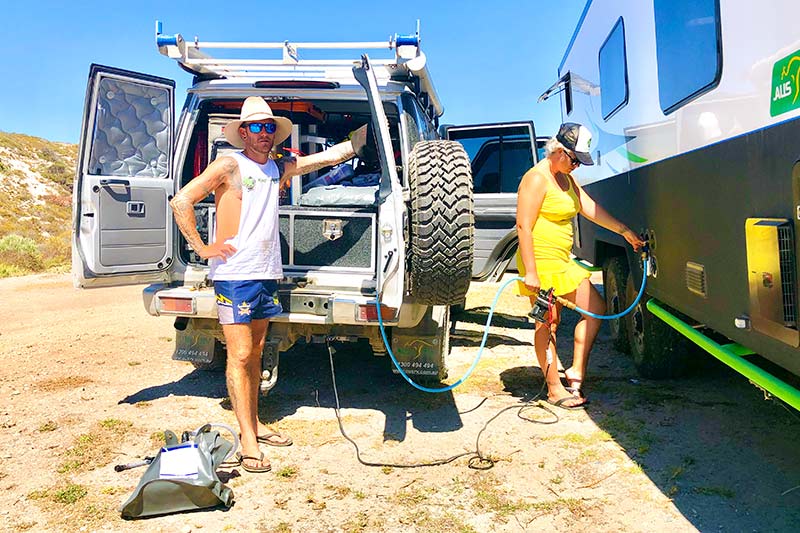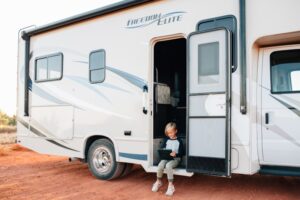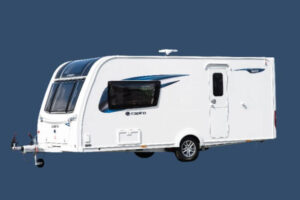Introduction to Caravan Water Systems
Importance of Water in Caravans: Water is indispensable in caravans, providing the means for cooking, cleaning, bathing, and sometimes even heating. Ensuring a reliable and safe water supply is crucial for a comfortable and hassle-free caravan experience. A well-maintained water system not only ensures the availability of water but also safeguards the health of the travelers by preventing contamination and ensuring the water is safe for consumption and use.
Different Types of Water Systems in Caravans: Caravans typically employ two main types of water systems: onboard and portable. Onboard systems have built-in water tanks and plumbing, providing a seamless water supply and waste management. Portable systems, on the other hand, involve external containers and may require manual intervention for water access and waste disposal. Understanding the intricacies of these systems helps caravaners choose a setup that best suits their travel style and needs.
Fresh Water Supply in Caravans
How Fresh Water is Stored and Accessed: Fresh water in caravans is typically stored in tanks that can be built-in or external. The water can be accessed through pumps, which may be manual or electric, ensuring a steady flow of water to taps and appliances. Regular checks on the storage system, ensuring it is clean and free from leaks, are vital to maintaining a healthy water supply, especially considering the mobility and varying conditions encountered during travel.
Methods to Ensure the Purity and Safety of the Water: Ensuring water purity involves regular cleaning of storage tanks, using water purification tablets, and occasionally utilizing water filters. It’s crucial to source water from reliable points and to always have a testing kit handy to check the water quality. Safety also involves ensuring that the plumbing and storage are in top-notch condition to prevent contamination from external sources.
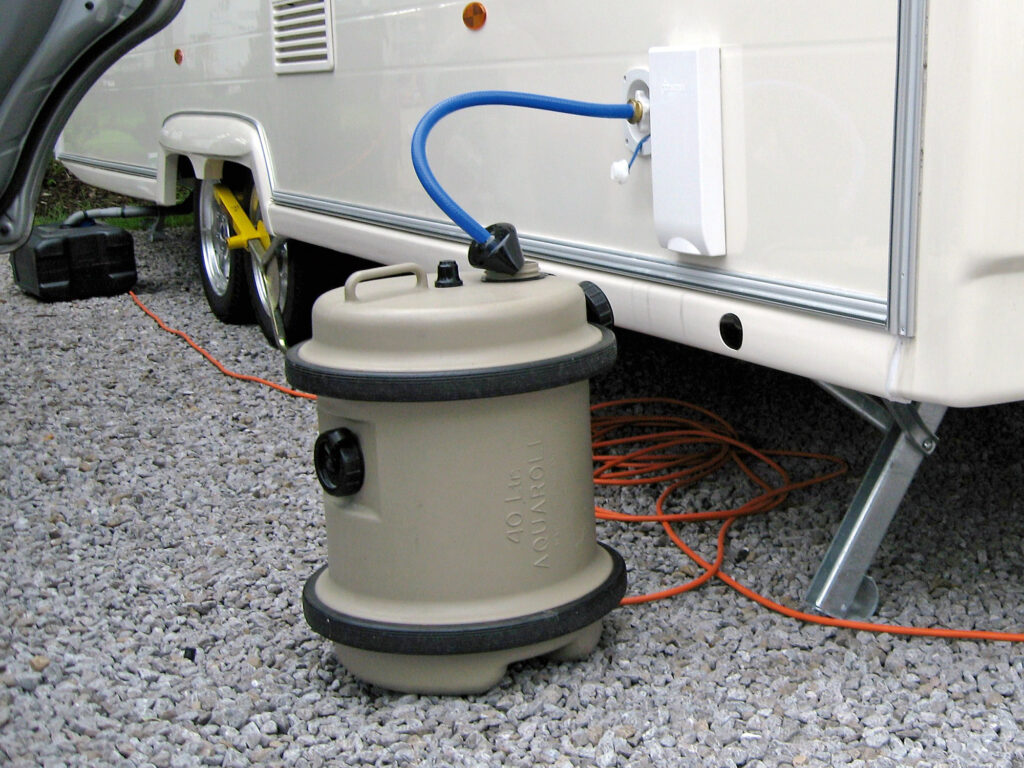
Waste Water Management
Understanding Grey and Black Water in Caravans: In caravans, waste water is categorized into grey and black water. Grey water originates from sinks and showers, while black water is sewage from toilets. Managing these effectively is crucial to prevent unpleasant odors, potential health hazards, and to ensure adherence to disposal guidelines. Separate tanks are typically used to store grey and black water, each requiring different disposal methods and precautions.
Efficient Waste Water Disposal and Management Methods: Efficient waste water management involves regular emptying of the tanks at designated disposal points and ensuring the tanks are cleaned to prevent buildup and odor. Utilizing eco-friendly detergents and cleaners can also minimize the environmental impact of disposal. Adhering to local guidelines and being mindful of the environment is crucial in maintaining sustainable and responsible caravaning practices.
Plumbing Systems in Caravans
Overview of the Plumbing Network in Caravans: The plumbing system in a caravan involves a network of pipes, pumps, and tanks that manage both the supply of fresh water and the disposal of waste water. Understanding the layout and functionality of the plumbing system is crucial for maintenance and troubleshooting. This includes knowledge of the water supply system, the drainage system, and the various components like pumps, valves, and heaters that ensure smooth operation.
Maintenance and Troubleshooting Common Issues: Regular maintenance of the caravan’s plumbing system involves checking for leaks, ensuring the pumps are functioning correctly, and that the pipes are not damaged. Troubleshooting common issues like blockages or pump failures requires a basic understanding of the system and having a set of tools handy. Sometimes, professional help may be needed for more complex issues, especially those involving the internal workings of appliances or the plumbing network.
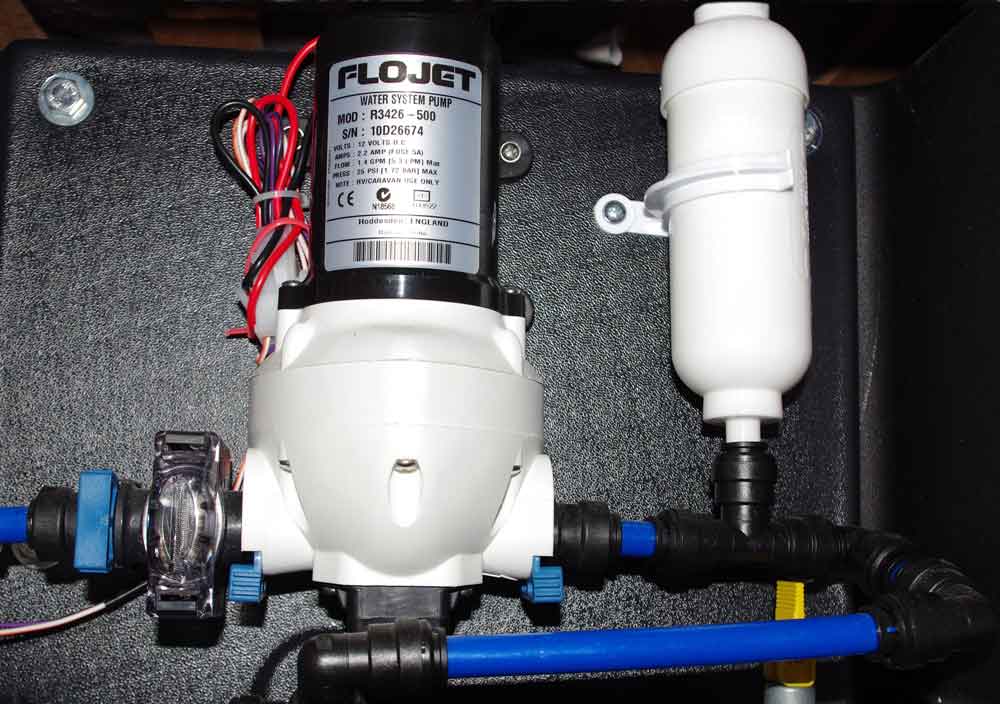
Water Heating Systems
Different Types of Water Heaters Available for Caravans: Caravans can be equipped with various types of water heaters, including gas, electric, and hybrid models. Gas water heaters are often praised for their efficiency and ability to provide hot water quickly, while electric heaters are appreciated for their safety and ease of use. Hybrid models combine both gas and electric elements, offering flexibility in usage and ensuring hot water availability in various circumstances.
Pros and Cons of Various Water Heating Systems: Each type of water heating system comes with its own set of advantages and drawbacks. Gas heaters, while efficient, may pose safety concerns and require proper ventilation. Electric heaters are generally safer but might consume more energy and be slower. Hybrid models offer versatility but can be more complex and expensive. Understanding the specific needs of the travel itinerary, availability of resources, and personal preferences is crucial in choosing the most suitable water heating system for a caravan.
Water Conservation Tips
Importance of Saving Water During Caravan Trips: Conserving water during caravan trips is vital to ensure a sustainable and uninterrupted journey, especially when traveling through regions where water sources are scarce or unreliable. Efficient water usage not only prolongs the availability of stored water but also minimizes the frequency of refills and waste disposal, thereby making the trip more convenient and eco-friendly. Adopting water-saving habits and technologies can significantly enhance the overall caravaning experience.
Practical Tips and Tricks to Conserve Water: Implementing practical water conservation strategies, such as using a low-flow showerhead, fixing leaks promptly, and reusing greywater for non-potable purposes, can make a substantial difference in water usage. Additionally, being mindful of water usage during activities like washing dishes, taking showers, and cooking can further conserve water. Employing water-saving gadgets and adopting practices like collecting rainwater can also contribute to effective water management during caravan trips.
Winterizing the Caravan Water System
Steps to Protect the Water System During Winter: Winterizing the caravan water system is crucial to prevent damage due to freezing temperatures. This involves draining all the water from the tanks, pipes, and appliances to avoid freezing and potential bursting of the plumbing components. Adding antifreeze to the system, especially in the traps and drains, can further safeguard against residual water freezing. Proper insulation of pipes and the water heater can also help in preventing freeze damage during winter storage.
Antifreeze and Other Winterizing Materials: Utilizing RV-grade antifreeze ensures that any residual water in the system does not freeze and cause damage. It’s vital to use non-toxic antifreeze designed for RV and caravan systems to ensure safety and compatibility. Other winterizing materials include pipe insulators, tank heaters, and faucet covers, which provide additional protection to the water system during the cold months. Ensuring a thorough winterization process is crucial to maintain the integrity and functionality of the caravan water system.
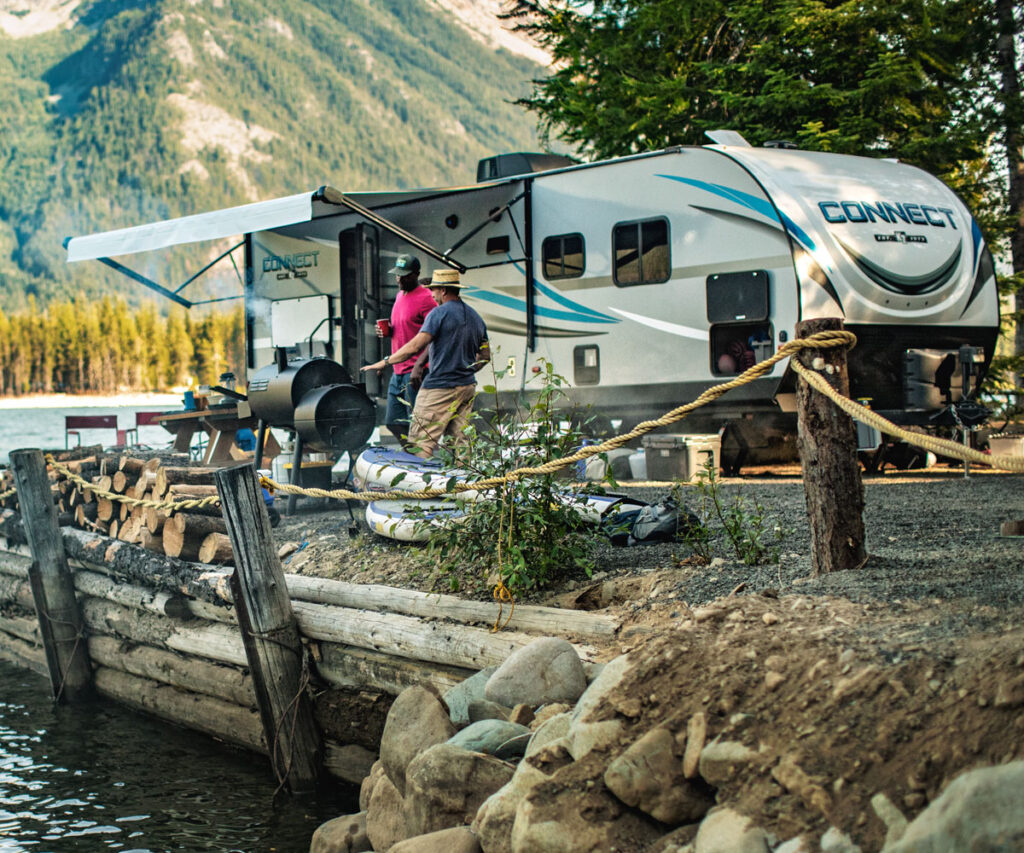
Troubleshooting Common Water Issues
Addressing Issues Like Leaks, Blockages, and Pump Failures: Addressing common water issues promptly is vital to prevent further damage and inconvenience during caravan trips. Leaks can lead to water loss and potential damage to the caravan’s structure, while blockages can disrupt the water flow and cause backups. Pump failures might result in an unreliable water supply. Having a basic repair kit, understanding the common issues, and knowing how to troubleshoot them can save time, resources, and potentially avoid a ruined trip.
DIY Solutions and When to Seek Professional Help: While some issues like minor leaks or simple blockages can often be resolved with DIY solutions, it’s crucial to recognize when professional help is needed. Complex issues involving the water heater, pump malfunctions, or extensive leaks should typically be addressed by a professional to avoid further damage. Having a reliable contact for professional caravan maintenance and ensuring regular check-ups can prevent unexpected issues and ensure a smooth and reliable water system.
Legal and Ethical Considerations
Adhering to Local Laws Regarding Water Disposal and Usage: Adhering to local laws and guidelines regarding water disposal and usage is crucial to responsible caravaning. Different regions may have specific rules regarding where and how waste water can be disposed of, and violating these can result in fines or other penalties. Ensuring that you are aware of and comply with these regulations is not only legally prudent but also vital in maintaining a positive relationship between the caravaning community and local authorities.
Ethical Considerations While Using Natural Water Sources: Using natural water sources, such as lakes and rivers, should be done with utmost consideration for the environment and local ecosystems. Ensuring that no pollutants, such as detergents or waste, enter these water bodies is crucial. Additionally, when sourcing water, it’s vital to ensure that it does not disrupt local wildlife or communities. Employing ethical and sustainable practices in all aspects of water usage and disposal ensures that the beauty and viability of natural sites are preserved for future generations.
Case Studies/Experiences
Sharing Experiences of Caravan Travelers Regarding Water Management: Incorporating real-life experiences and case studies of caravan travelers can provide valuable insights and practical advice to readers. Sharing stories of how different travelers have navigated water management challenges, innovated solutions, and adapted to various situations can be both engaging and educational. These experiences can also serve as cautionary tales or inspire readers to explore new ideas and approaches in their caravaning adventures.
Learning from Real-life Scenarios and Challenges Faced: Learning from the challenges faced by others in managing caravan water systems can provide practical knowledge and prepare travelers for similar situations. Understanding how others have dealt with issues like water shortages, plumbing failures, or navigating local regulations can equip readers with strategies and considerations for their journeys. Additionally, it fosters a sense of community and shared learning among caravan enthusiasts, enhancing collective knowledge and experience.
Conclusion
Summarizing Key Points Discussed in the Article: Concluding the article by summarizing the key points and takeaways provides a comprehensive overview and reinforces the crucial aspects of caravan water management. Highlighting the importance of efficient, ethical, and legal water management, and recapping practical tips and strategies, ensures that the core messages are reiterated and retained by the readers. A well-rounded conclusion also provides closure and may inspire readers to explore further and engage with the content.
Inviting Readers to Share Their Experiences and Tips: Engaging readers by inviting them to share their experiences, tips, and feedback fosters community and encourages interaction. This not only provides additional insights and perspectives but also enhances the resource pool for future articles and discussions. Creating a platform for shared learning and interaction ensures that the article is not just informative but also a starting point for further discussions, learning, and community building within the caravaning sphere.
